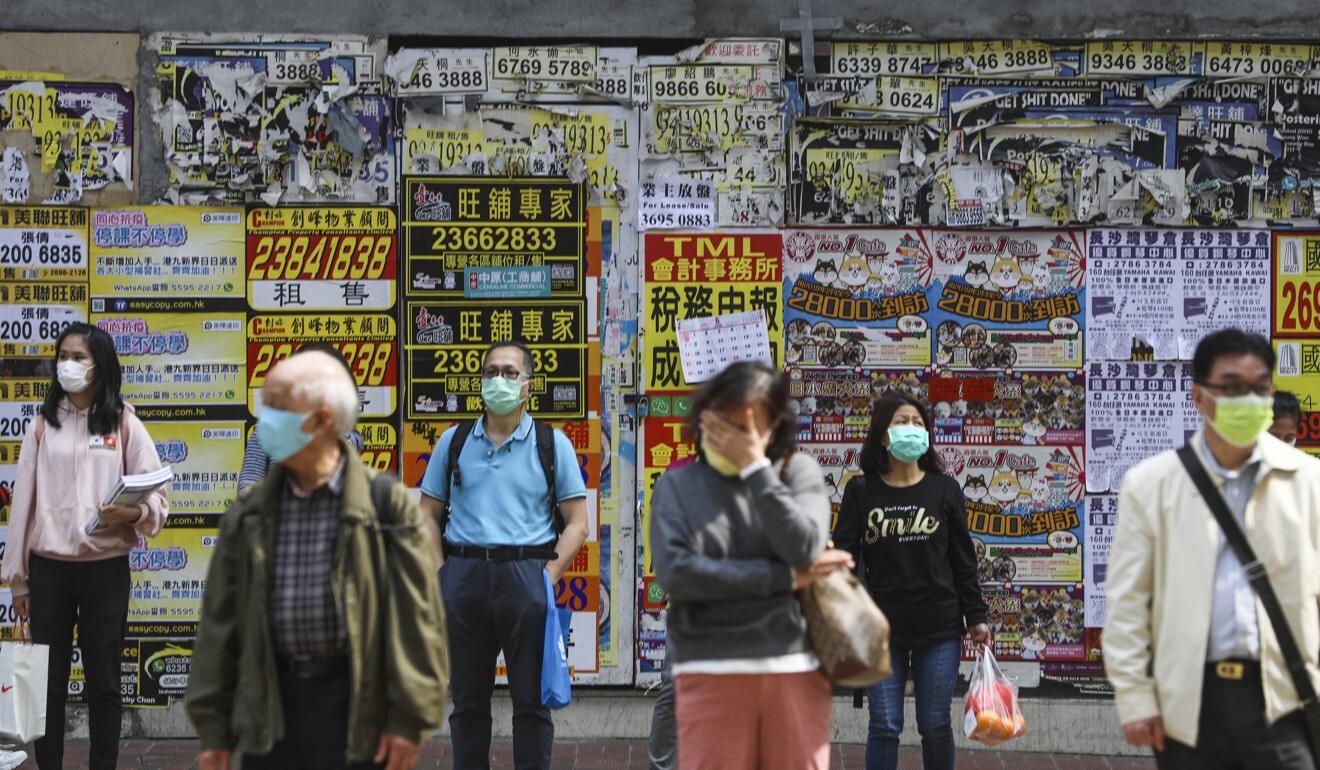
Hong Kong legislature passes HK$627 billion budget
- Budget covers cash handouts, tax breaks and subsidies to offset economic blow from coronavirus pandemic
- Bill approved after three weeks of debate that saw pro-establishment and opposition camps accuse each other of undermining the city

Hong Kong’s legislature on Thursday passed the administration’s HK$627 billion (US$80.9 billion) budget containing cash handouts, tax breaks and a raft of subsidies to provide relief during the coronavirus pandemic, but the bill was backed solely by the pro-establishment bloc.
As the three-week debate over the bill came to an end, opposition lawmakers continued to level criticism at the police, which they accuse of using excessive force when handling anti-government protests. They also said the funding boost for the disciplined service branch was a line in the sand.
Beijing-friendly lawmakers, meanwhile, called on the government to distribute cash handouts more quickly while slamming the rival camp for trying to trigger a “constitutional crisis” with talk of vetoing the budget.
The bill passed with 42 lawmakers voting yes and 23 voting no. Medical sector lawmaker Dr Pierre Chan was the sole abstention.
Under the budget unveiled by Financial Secretary Paul Chan Mo-po, which contained a HK$120 billion relief package, each adult permanent resident will receive HK$10,000 – at a total cost to the government of HK$71.1 billion.
Speaking after the budget was passed, Chan said the preparation for cash handouts had been going “full speed”, and the government was aiming to open applications by the end of June and distribute the money between July and August.
Discussions with retailers were ongoing to stimulate consumption, he added.

During the debate, pro-establishment lawmakers shot down 52 amendments filed by 16 pan-democrats to reduce funding for 42 government departments. Apart from the HK$125 million slated for the Chief Executive’s Office, pro-democracy lawmakers also sought cuts to the HK$25.8 billion earmarked for the police.
Pan-democrats focused their criticism on the force and embattled Chief Executive Carrie Lam Cheng Yuet-ngor. Civic Party leader Alvin Yeung Ngok-kiu said it was unacceptable for the budget to fund more manpower and gear for the police, noting the 7 per cent increase in staffing was its biggest in decades.
“Hongkongers have witnessed how the force has abused their power and made arbitrary arrests over the past months,” Yeung said. “But the government has allocated many resources to the least trusted and popular department. How can they convince us the budget is beneficial to the public?”
Party colleague Kwok Ka-ki said Lam was to blame for a dwindling level of freedom in the city. “The government follows every order from the Communist Party,” Kwok said. “We have to cut the salary of Lam as she has bowed down to pressure from Beijing and undermined the high autonomy of Hong Kong.”
Democratic Party leader Wu Chi-wai made similar calls, saying the budget has demonstrated the government’s ignorance of the political problems the city faced. Describing the upcoming Legco election as a de facto “referendum”, Wu warned that the opposition could veto next year’s financial package should they secure a majority.
“Many said the city would be in lockdown if the budget was vetoed … yet, that’s a check and balance mechanism laid out in our constitution,” Wu said. “[The election] will be a confidence vote for our government.”
The pro-government camp slammed the opposition for upholding a “if we burn, you burn with us” mentality. In response to Wu, Priscilla Leung Mei-fun, a member of the Business and Professionals Alliance for Hong Kong and Basic Law Committee, argued the approach would only endanger the “one country, two systems” principle.
Your goal is not only to veto the budget but paralyse all of Hong Kong
“Your goal is not only to veto the budget but paralyse all of Hong Kong to achieve the so-called five demands,” Leung said, referring to the core calls of the anti-government protesters, including universal suffrage. “There is an equilibrium point of the one country, two systems, and any veto is surely not the way to protect the principle.”
Starry Lee Wai-king, chairwoman of the Democratic Alliance for the Betterment and Progress of Hong Kong, blasted rivals for trying to create a “constitutional crisis” through a veto.
But she also criticised the government for being too slow in handing out benefits. “I have asked Paul Chan if he could speed up the cash handouts today … but it is regrettable that the authorities said they cannot make it,” she said, calling welfare minister Law Chi-kwong “out of touch” with the public.
Alice Mak Mei-kuen, of the Federation of Trade Unions, also expressed disappointment that the government was taking so long to distribute cash to the needy.
In response to criticism of the police, two lawmakers from Mak’s camp who also serve as vice-chairmen of the Independent Police Complaints Council (IPCC) attempted to defend the force during the debate.
“I dare not hastily say if the police had used excessive force, I just want the opposition to lay down their bias and hatred for the police,” Christopher Cheung Wah-fung said, calling on complaints against the police to be filed through existing channels.
Asked Tony Tse Wai-chuen: “Who will gain benefits if the police force is disbanded? Only the criminals and those who wish their words were the law.”
Help us understand what you are interested in so that we can improve SCMP and provide a better experience for you. We would like to invite you to take this five-minute survey on how you engage with SCMP and the news.